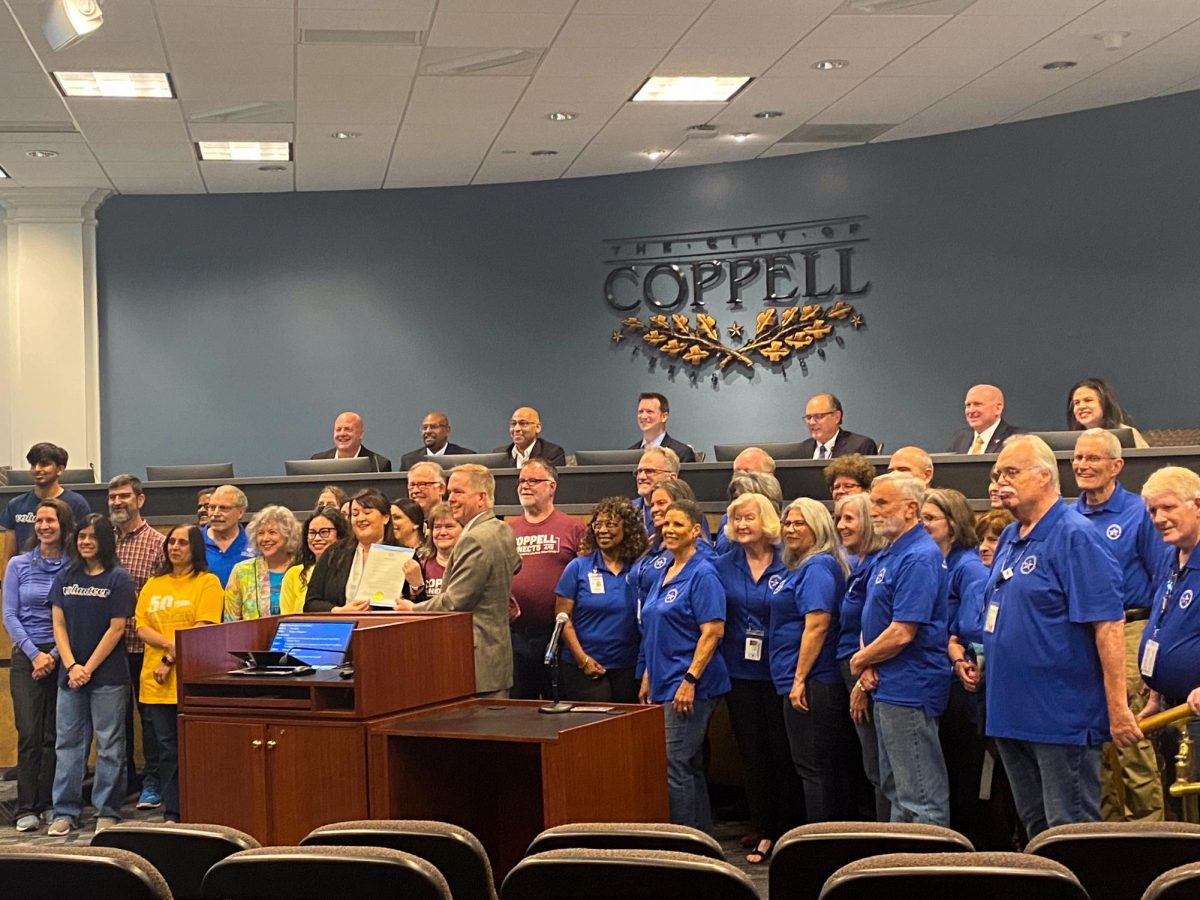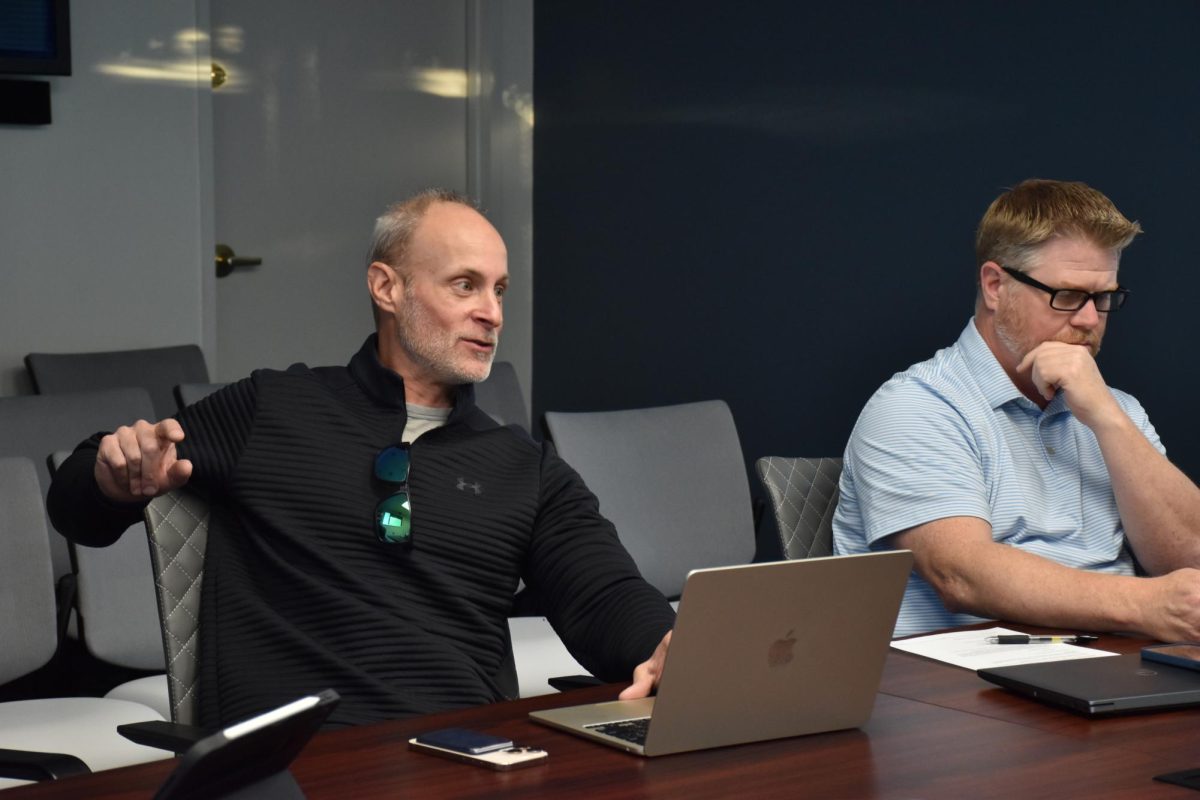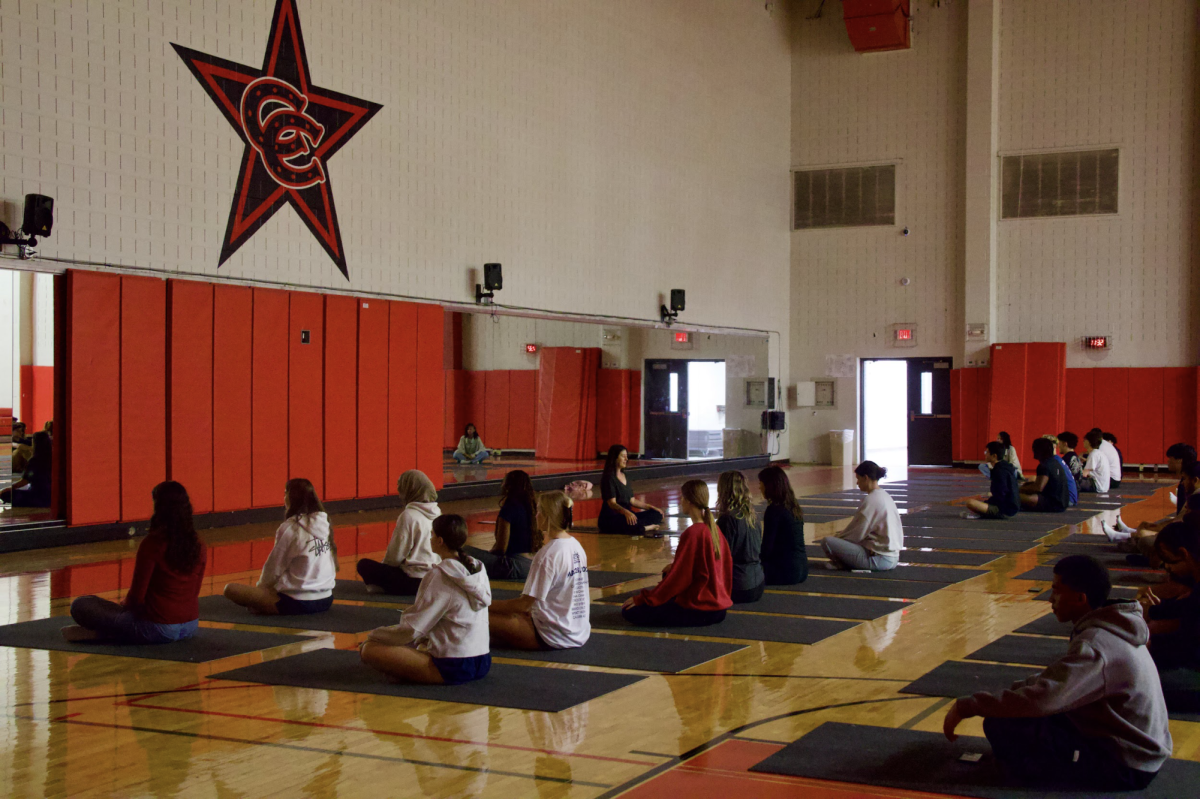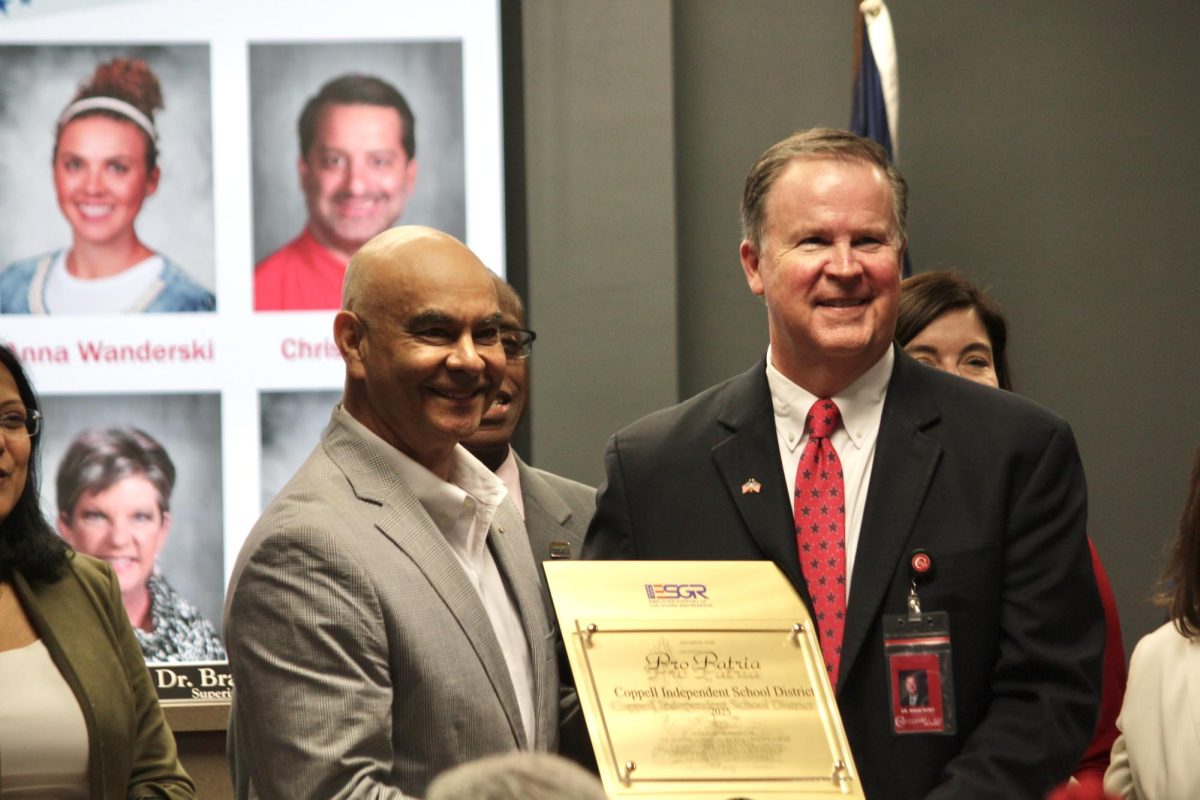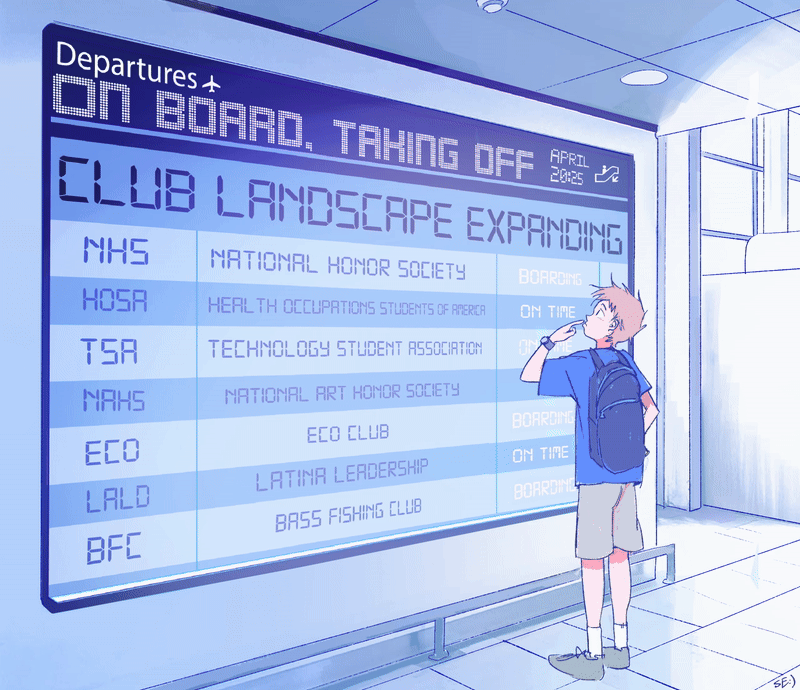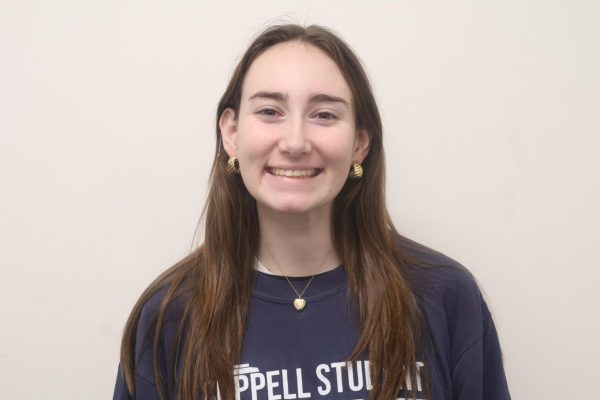On Friday, Coppell Middle School East hosted a seminar about artificial intelligence, and its impacts on the workforce. It was presented by JPMorgan Chase Executive Director of Cybersecurity & Technology Controls Samit Majumdar and Director of Product Management Neetu Jain.
Jain introduced the Thomson Reuters Media Literacy Contest hosted by NAMLE for middle and high school students. For the contest, students work in groups and record a video of two minutes or less of how to prevent artificial intelligence from having unintended ramifications such as jeopardizing existing jobs, identifying misinformation and more.
Jain spoke about the ramifications of implementing artificial intelligence into our lives such as loss of jobs, receiving misinformation from it, or being able to hack into your device.
“How can we put guard rails within artificial intelligence?” Jain said “Ultimately, it is a computer that is programmed, so how can you program a computer that cannot be used for bad cases or has the capability to overpower you?”
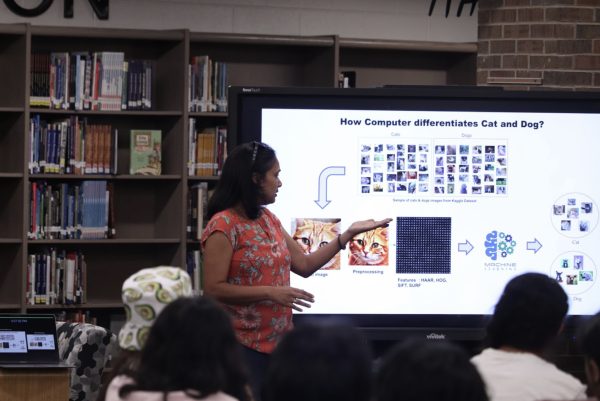
In addition to the contest, Majumdar explained how machine learning works, and the complexities of artificial intelligence.
“Just like a human brain, we create machines, which we call models in machine learning terms, which learn information through experiences,” Majumdar said. “Those models are developed, and you train on a set of data.”
He further delved into the idea of machine learning and its separate categories.
“One category is supervised, and the other is unsupervised.” Majumdar said. “Supervised learning is where a ‘supervisor’ tells the machine to level the data. Unsupervised learning is where you already train your brain to group things together, which is called leveling in machine learning terms.”
The seminar commenced with answering questions about the media literacy contest and how artificial intelligence is developed.
Follow @anvita_bondada and @CHSCampusNews on X.




